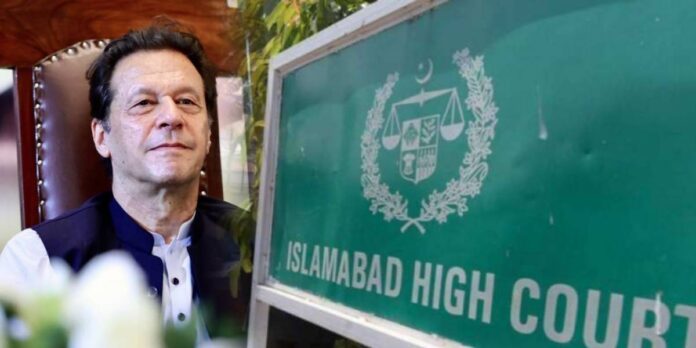The Islamabad High Court( IHC) witnessed a significant legal development on Wednesday as it suspended the hail on a plea filed by the Pakistan Tehreek-e-Insaf( PTI) president, Imran Khan, seeking his transfer from Attock Jail to Adiala Jail. The proceedings, presided over by Chief Justice Aamer Farooq, unfolded with hot arguments and immersing legal debates, slipping light on the complications of the case. before this week, the legal counsel representing the PTI president, Naeem Hyder Punjotha, presented a comprehensive plea before the Islamabad High Court( IHC). In the plea, not only did Punjotha request the court to grease the shift of his customer to Adiala Jail, but he also supplicated the court to insure that Imran Khan receives’ A’ class installations during his incarceration. The courtroom was a scene of expectation as Sher Afzal Marwat, representing the PTI president, stood before the bench to articulate his arguments. With unwavering determination, Marwat posed a question that reverberated within the courtroom walls Why is the PTI president confined to Attock Jail? He earnestly appealed to the court, prompting it to exercise its authority and issue directives for the transfer of his customer from Attock Jail to Adiala Jail. also, Marwat called upon the court to intermediate and insure that Imran Khan is handed with the honor of manual refections and the occasion to meet with callers.
Read More : The Islamabad High Court, under the leadership of Chief Justice Aamer Farooq, displayed its commitment to justice by summoning responses from both the civil and Punjab governments. This move underscores the court’s fidelity to a thorough and well- informed decision- making process. The proceedings, although suspended, left a palpable sense of expectation in the air as everyone awaited the coming chapter in this legal saga. The case has garnered considerable attention due to its high- profile nature, involving the PTI president who has played a prominent part in Pakistani politics. Imran Khan’s plea to be transferred to Adiala Jail has sparked conversations on colorful platforms, egging debates about the conditions of his detention and the legal counteraccusations of his request. The background of this legal battle is the Toshakhana case, in which the PTI president has set up himself entangled. The Toshakhana, a depository of gifts given to autocrats and dignitaries, has been the subject of scrutiny, leading to legal proceedings that have now crowned in Imran Khan’s confinement. The legal fraternity and the public likewise have been nearly following the developments of this case, as it not only touches upon legal nuances but also delves into the realm of politics and governance. The intricate balance between the principles of justice and the demands of a performing republic have come to the fore, as legal experts and judges anatomize the counteraccusations of each twist and turn in the courtroom. The significance of a fair and transparent legal process can not be exaggerated, especially when it involves a prominent political figure. The bar’s part in upholding the rule of law and icing that justice is served without prejudice is consummate. The IHC’s careful consideration of the plea, its summoning of responses from applicable authorities, and its commitment to thoroughness are reflective of a system that values due process and the principles of justice. As the legal proceedings unfold, it’s essential to flash back that at the heart of this case lies the abecedarian principles of responsibility and translucency. The plea for transfer, the request for upgraded installations, and the conversations around the Toshakhana case are all part of a broader narrative that seeks to uphold these principles and uphold the trust of the people in the justice system. The adjournment of the hail serves as a pause in this legal trip, allowing time for both sides to present their arguments, for authorities to respond, and for the court to strictly weigh the substantiation and considerations before arriving at a decision. The outgrowth of this case will really have far- reaching counteraccusations , not only for the PTI president but for the legal geography and the broader converse on responsibility and governance. As the legal proceedings progress, the eyes of the nation remain fixed on the courtroom, awaiting the coming chapter in this unfolding narrative. The IHC’s part in icing a fair and just process is a testament to the strength of Pakistan’s judicial system. Eventually, the pursuit of justice, the upholding of responsibility, and the adherence to the rule of law serve as the guiding principles that will shape the outgrowth of this case and contribute to the elaboration of Pakistan’s popular trip.
